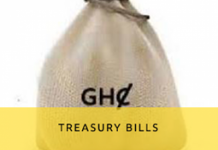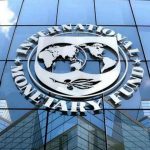The government of Ghana is set to re-enter the domestic bond market ahead of the usual recovery timeline, following the successful completion of its Domestic Debt Exchange Programme (DDEP) in September 2023.
Ghana intends to open access to its domestic bond market for non-resident investors as early as next year, signaling confidence in the country’s economic recovery.
This marks a departure from the typical two- to four-year period it usually takes for countries to regain market access after undergoing debt restructuring.

Samuel Arkhurst, Director of the Treasury and Debt Management Division at the Ministry of Finance, shared details of the government’s plans during a media briefing at the IMF/World Bank meetings in October 2024.
He explained that the re-entry aligns with Ghana’s fiscal strategy, highlighting that the last bond issuance occurred in September 2022, well before the DDEP began in January 2023.
The program was completed by September 2023, marking a near two-year gap from the last bond issuance to the anticipated reopening.
Arkhurst emphasized that Ghana’s swift re-entry into the bond market was possible due to favourable conditions in the fiscal framework. He stated, “The restructuring took care of all domestic and external bonds, and since then, we have relied on Treasury bills, which have been incorporated into the budget deficit and fiscal framework.”
The decision to reopen the bond market for non-residents is a significant step in Ghana’s recovery strategy, aiming to tap into the high demand from foreign investors.
While inflation peaked at 54% in 2022, it has since seen improvements, with the October 2024 figure dropping to 22.1%. Arkhurst noted that the expected normalization of inflation in 2025 would create a more favorable environment for issuing bonds.
“If you were to issue a bond at 54% inflation, the real interest rate would be close to 60%. With the current economic conditions, we anticipate better conditions for bond issuance,” he added.
Currently, non-residents are restricted to purchasing bonds, as Treasury bills are not open to them. The government’s plans to open the bond market for non-residents next year are expected to unlock a significant influx of foreign capital.
Regarding the Eurobond market, Arkhurst clarified that having market access does not immediately lead to issuance. “Access means having the favorable conditions and investor appetite, even if issuance is not immediate,” he explained.
The government will monitor investor sentiment and broader economic conditions before making any issuance decisions.
Market activity in Ghana’s secondary bond market showed positive signs in the third quarter of 2024.
According to Apakan Securities’ Third Quarter Market Review, bond trading increased by 53.05% from Q2-2024, reaching GH¢47.31 billion.
This surge reflects the settling of coupon payments on DDEP bonds and an overall improvement in market conditions and liquidity.
Yields on medium-tenor bonds increased by an average of 7.56%, while longer-dated bond yields rose by an average of 3.66%.
Investor interest remained high in medium-dated bonds, particularly those maturing in February 2027 and February 2028.
























































![[FREE FREE MONEY] Predict and Win a Guaranteed GH¢200 From Us EVERY WEEK](https://wordpress.ghanatalksradio.com/wp-content/uploads/2022/02/Predict-and-Win-Final-09-03-2021-218x150.jpg)
![[Predict & Win – 8th/Oct.] WIN A Guaranteed ¢200 From Us This Week](https://wordpress.ghanatalksradio.com/wp-content/uploads/2021/10/maxresdefault-16-218x150.jpg)
![[Predict & Win – 2nd] WIN A Guaranteed ¢200 From Us This Week](https://wordpress.ghanatalksradio.com/wp-content/uploads/2021/09/maxresdefault-50-218x150.jpg)
![[Predict & Win – 25th] WIN A Guaranteed ¢200 From Us This Week](https://wordpress.ghanatalksradio.com/wp-content/uploads/2021/09/maxresdefault-36-218x150.jpg)
![[Predict & Win – 18th] WIN A Guaranteed ¢200 From Us This Week](https://wordpress.ghanatalksradio.com/wp-content/uploads/2021/09/maxresdefault-23-218x150.jpg)







![[National cathedral] See full list of churches that have contributed since 2018](https://wordpress.ghanatalksradio.com/wp-content/uploads/2020/09/Ghana-National-Cathedral-GhanaTalksRadio-100x70.jpg)



